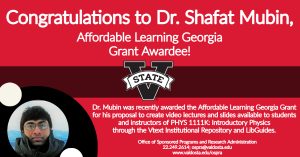Program Officer Cathleen Tefft of the National Endowment for the Humanities (NEH) joined GRC conference attendees last week to speak about NEH funding to support preserving and accessing cultural collections and to provide tips to potential applicants. Eligible cultural collections can include collections of books, serials, manuscripts, sound recordings, still and moving images, works of art, objects of material culture, and digital collections. The NEH Division of Preservation and Access provides a variety of grants that support preservation, capacity building, sustainability, training, and public engagement related to these humanities collections. A full list of Preservation and Access grant programs can be found here.
Among the tips, Tefft provided was to make sure to read the sample application narratives and sample budgets, usually found on the right side of the main page of an NEH grant program site, which can provide a sense of what a funded proposal looks like. Applicants can even request that other samples be made available if they want to see a narrative that’s a better fit. Tefft noted that program pages also contain lists of frequently asked questions and statistics on the probability of an applicant’s success based on the number of applications submitted and awards made in previous years. She also suggested that before submitting, applicants look at recent awards in the NEH awards database related to their geographic area and discipline to get a sense of funding trends. She noted that NEH Program Officers are happy to review and provide comments on draft proposals or ideas up to a month in advance of the deadline. She also stressed that one of the best ways to gain experience is to serve as a peer reviewer – potential reviewers can register here and learn about the review process here.
In a highlight of her talk, Tefft showed attendees how different NEH grants could fund various aspects of a preservation-related project, illustrating this through the example of the David Livingstone Spectral Imaging Project at the University of Nebraska, Lincoln. This project was funded through three awards from three different NEH Divisions: NEH Digital Humanities, which provided $50,000 to develop the technology and tools that would allow researchers to preserve and digitize the diary of 19th Century explorer David Livingstone; NEH Preservation and Access, which provided $275,000 to support the digitization and transcription of the diary pages; and NEH Research, which provided $158,605 to prepare publication of an online critical edition of the diary.
For more information on this session contact GRC Program Manager Richard Wellons at wellonsr@aascu.org or (202) 478-4714.
